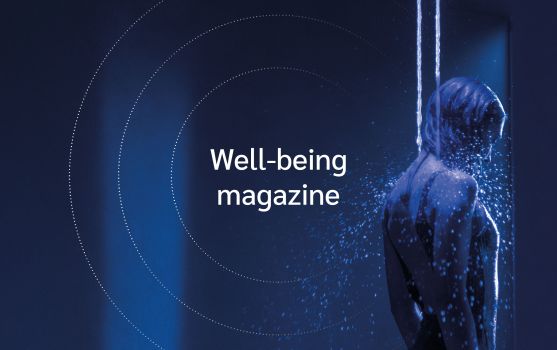
In today’s world, where holistic care for both body and mind is increasingly valued, advancements in physiotherapy are paving the way for enhanced well-being and quality of life. We spoke with Nicolò Lazzaroni, physiotherapist and owner of a private clinic, who shares how hydrotherapy and multisensory systems, integrating water, light, sound, and aromas, serve as powerful tools in physical prevention and recovery. Discover his holistic approach and how these innovative technologies can help anyone seeking comprehensive and effective care for their body.
I graduated in Physiotherapy from the University of Brescia in 2017.
Early on, I had the chance to collaborate with a variety of settings, including amateur football teams, specialized outpatient clinics, private physiotherapy practices, and nursing homes.
These diverse experiences helped me develop a broad and integrated understanding of the profession. In 2022, I established my own private clinic in partnership with Bravi Med Poliambulatorio, where I continue to practice today.
I work with a wide range of patients, from those managing chronic conditions to elite athletes, as well as individuals focused on prevention and overall physical wellness.
Currently, I’m deepening my expertise by pursuing a Sports Physiotherapy course at the University of Pisa.
I believe hydrotherapy systems are highly effective tools for both preventing and treating muscle tension, especially with the advancements in modern technology.
The alternating use of hot and cold water promotes tissue vascularization, improving blood circulation and aiding muscle recovery while reducing pain.
These benefits are often incorporated into physiotherapy sessions as well, through manual techniques or the use of electrotherapy devices, to provide a comprehensive and personalized treatment.
Mental relaxation plays a crucial role in physical health, particularly for patients dealing with work-related stress.
In my clinical practice, I’ve frequently seen how emotional tension can heighten muscular pain, delay recovery, and in some cases, even be a root cause of musculoskeletal issues.
Multisensory stimuli, such as colors, scents, and sounds, can promote a deep sense of well-being by positively influencing both the nervous and muscular systems. When techniques like chromotherapy, aromatherapy, and music therapy are integrated into a therapeutic setting, they help reduce stress, ease physical tension, and create a more calming environment.
This not only improves the overall patient experience but can also significantly enhance the effectiveness of physiotherapy, supporting faster and more lasting results.
In recent years, there has been growing awareness around the importance of physical activity and overall well-being. This shift has led many people to embrace a more active lifestyle, turning gyms, sports centers, and spas into places not only for training, but also for holistic body care. The integration of hydrotherapy and multisensory systems in these settings is certainly beneficial: they enhance recovery after physical effort, help prevent overload and strain, and improve the effectiveness of workouts. Even those who don't engage in regular sports can experience significant benefits from these preventive treatments.
My advice is to start gradually and stay consistent, paying attention not only to physical activity but also to essential aspects like nutrition, quality of sleep, stress management, and recovery time.
There’s no need for intense workouts or complicated routines: simple daily habits, such as walking more, doing stretching exercises, staying properly hydrated, and listening to your body, are enough to begin a sustainable and effective self-care journey.
DISCOVER ALSO